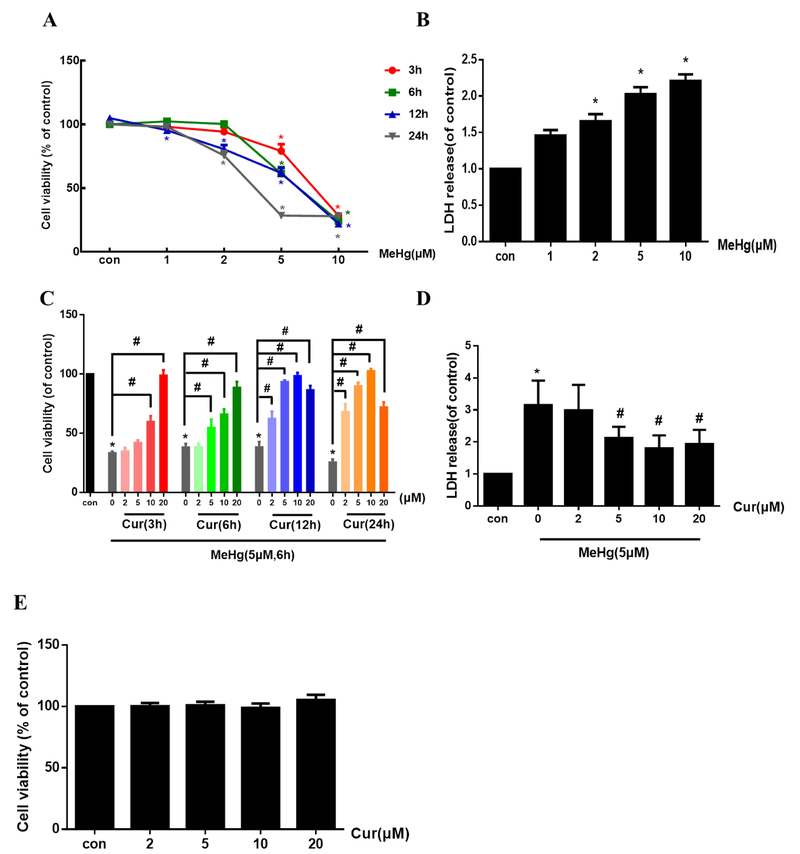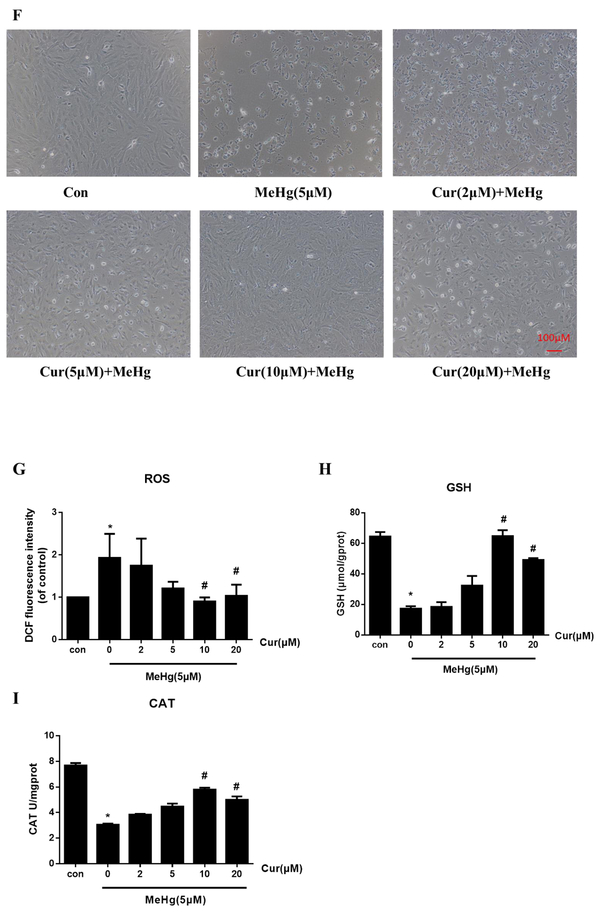Fig. 1.
Curcumin protects against MeHg-induced acute astrocytic injury and oxidative stress. (A) Astrocytes were treated with MeHg at the indicated concentrations for up to 24 h, and cell viability evaluated by the MTT assay. (B) MeHg-induced cytotoxicity was measured by the LDH release assay. Cells were treated with MeHg at the indicated concentration for 6 h. (C) Astrocytes were treated with 5 μM MeHg after pretreatment with 0, 2, 5, 10 or 20 μM curcumin for 3, 6, 12 and 24 h, and cell viability was determined with the MTT assay. (D) Effects of curcumin pretreatment (2, 5, 10 and 20 μM for 12 h) on MeHg-induced cytotoxicity, as measured by the LDH release assay. (E) Effects of curcumin (2, 5, 10 and 20 μM for 24 h) on astrocyte viability, as determined by the MTT assay. (F–I) Effects of curcumin pretreatment (2, 5, 10 and 20 μM for 12 h) on MeHg-induced astrocyte morphology changes, ROS production, GSH content and CAT activity. Scale bar: 100 μm. Data are expressed as mean ± SD of at least three independent experiments (*P < 0.05 vs. control. #P < 0.05 vs. MeHg alone group. Cur, curcumin; MeHg, methylmercury.


